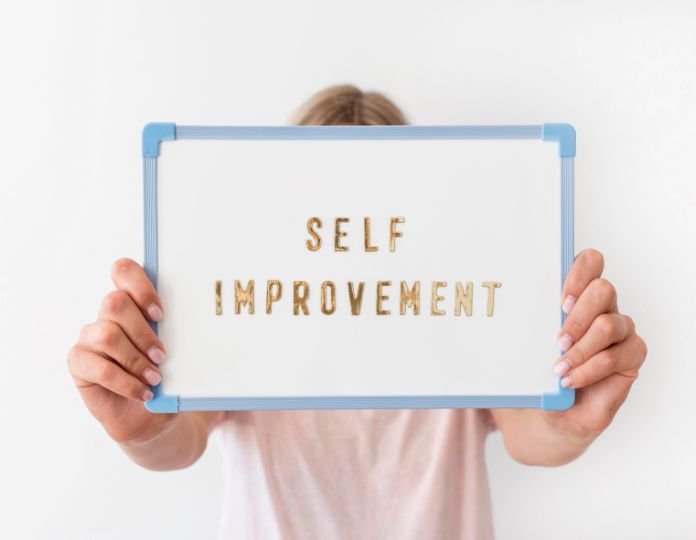Self-improvement is about willingly trying to improve one’s knowledge, acquiring new skills and enhancing personal qualities. It’s about discovering both your strengths and weaknesses. Then make efforts to polish your strengths to achieve your maximum potential without letting your weaknesses overpower it. It’s a life-long process that involves heading towards the path of your best version with a positive mindset. And this journey in itself is self-improvement, as there’s no specific destination to it.
What is the Importance of Self-Improvement?
Self-improvement involves being self-aware about your strengths, weaknesses and values based on your evaluation and not others. It includes developing new skills, knowledge and perspectives which can aid to a progressive personal growth. It also involves working towards difficult yet achievable goals. Habit formation is also an essential part of it, which involves trying to create positive routines and breaking the negative ones, without wearing out the mental peace of mind and health of your body. It’s a continuous learning process that involves embracing new experiences, challenges and opportunities. It’s just not only about trying to be in improvement mode all the time but, it’s also about building a greater resilience to develop coping strategies and learn from your failures.
Read More: 10 Reasons People Struggle with Self-Discipline, According to Psychologist
Myths about Self-Improvement
Improving yourself doesn’t require you to be solo on this journey, you can always seek help and support from others. It’s not a sign of weakness but having the courage to do this, reflects your strength. Some people think that it’s about fixing what’s broken but, they forget that sometimes unbroken things also need fixing. So self-improvement is about holistic growth not just fixing flaws.
Self-improvement is not a linear process; it includes ups and downs, twists and turns. And you need to understand that coming to the lows, prepares you to face the highs. So, enjoy the process with whatever, it has to offer without giving up. Taking one step at a time is an incremental or small change but, it gives you the strength to adapt yourself for the big change. So, self-improvement doesn’t require drastic changes every time. It doesn’t have an age bar so; it’s not only for young people. It’s for anyone and everyone regardless of age. You realize the need for self-improvement with time and experience.
Addiction to Self-Improvement
It is also known as “self-help addiction” or “personal development addiction” where an individual is obsessed with excessive and intrusive thoughts about self-improvement and compulsively pursue it at the expense of other important aspects of life.
Signs of Addiction to Self-Improvement
These people constantly seek new strategies and techniques to upgrade and improvise themselves as if they are machines, they feel anxious or guilty when they’re not actively improving, they neglect other important aspects of life such as relationships and hobbies, they use self-improvement as an avoidance mechanism as they believe that avoiding certain things will improvise them they’re not satisfied with themselves and feel like they’re never good enough.
Read More: 10 Characteristics of Highly Satisfied People, According to Psychology
Effects of Addiction on Self-Improvement
But, this kind of behaviour is not at all healthy, it’ll produce an overemphasis on your flaws and shortcomings, constant feelings of inadequacy, burnout and exhaustion, neglect your relationships and responsibilities, set unrealistic expectations and disappointment, decrease self-acceptance and self-compassion, leads to a constant seeking of external validation, ruins the enjoyment of the present moment and the individual may feel trapped in a loop in the name of continuous improvement.

The extent of self-improvement is unique for every individual and it may evolve according to time and situation as goals and priorities change. So, one should be flexible about this journey of self-improvement by setting realistic and achievable goals, focusing on healthy progress; not perfection, celebrating small wins, taking one step at a time, and being patient and persistent while practising self-compassion.
There’s always a scope for improvement in everything but, it’s necessarily not needed. Machines are updated according to the latest version of the software. But, we as a human need the liberty and freedom to be non-updated and non-improvised at times. We can’t simply set timers on the speed of our improvement.
It doesn’t mean pushing the broken car on the bumpy road every time, sometimes it requires a smooth road, sometimes it requires lubrication, sometimes it needs mechanical fixing and sometimes it even needs to stop but it’ll restart eventually. And this time the car will ride smoothly even on the bumpy road, because its well- lubricated, properly fixed and ready for the next ride.
So, you and you as a human being have lots of improvements to make in ourselves, but we have to make sure to enjoy the journey of it. We have to remember that it’s a process that requires an abundance of our efforts as input but, we won’t realize the improvement, if we keep waiting for the outputs. So, let’s process ourselves together to evolve into a self-improvised, happy and healthy individual.
References +
Self Development – Towards My Betterment | JNU Jaipur. (n.d.).https://www.jnujaipur.ac.in/blogs/self-development-%E2%80%93-towards-my-betterment-/191
Self-Improvement: How to Continually Improve Any Area of Your Life (Backed by Science).(2022, August 31). James Clear. https://jamesclear.com/self-improvement













Leave feedback about this